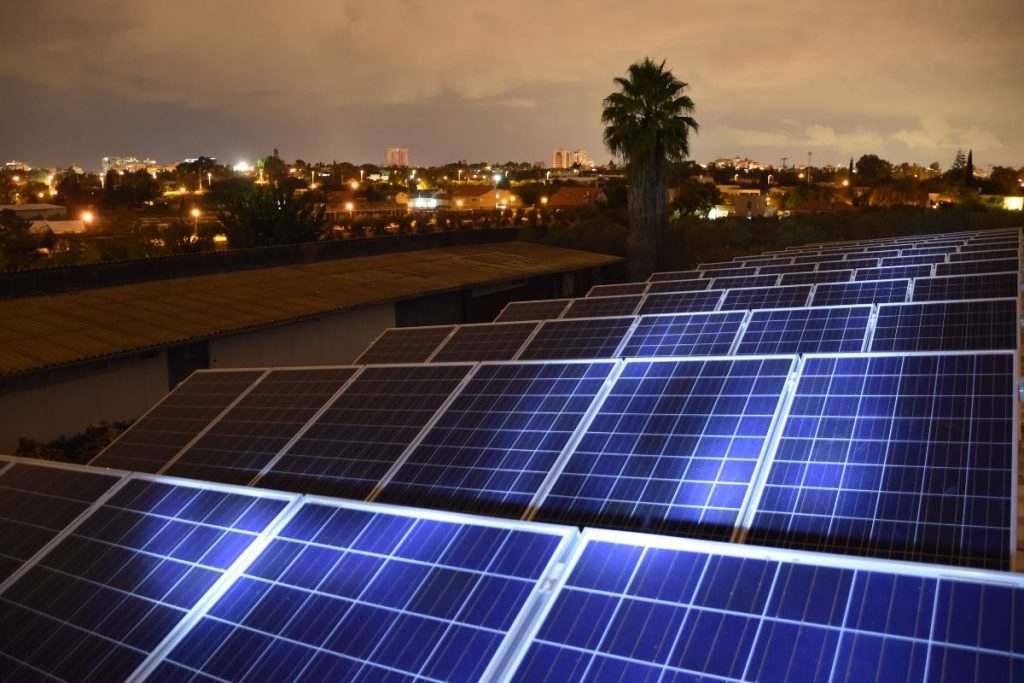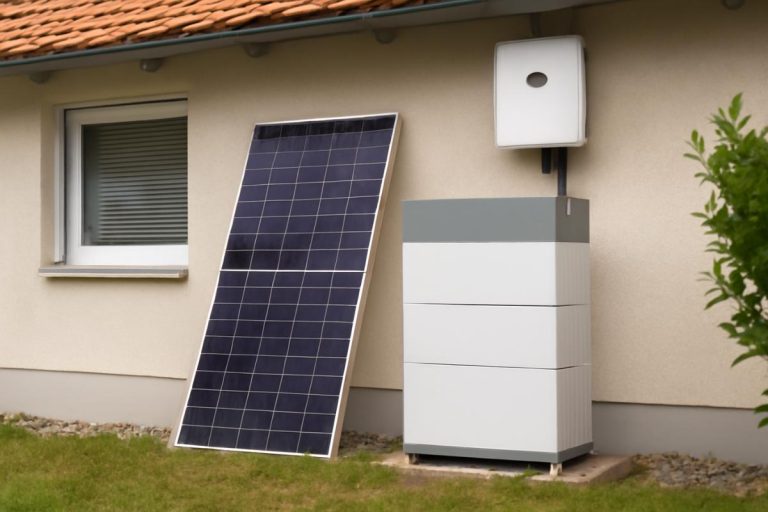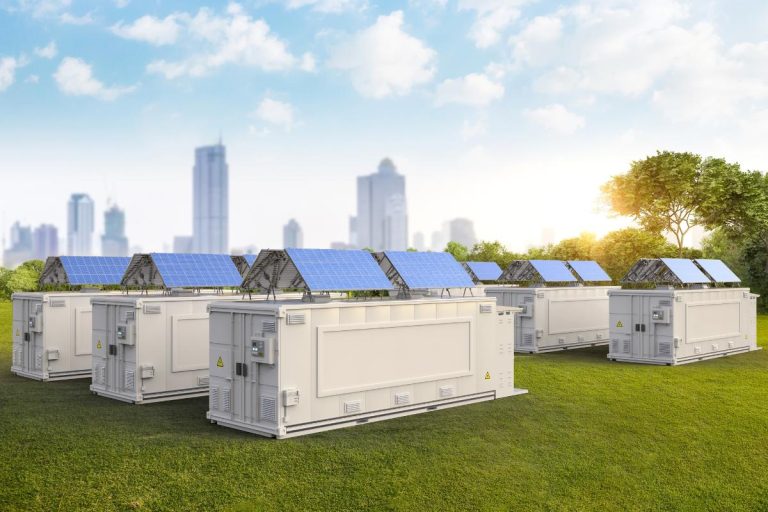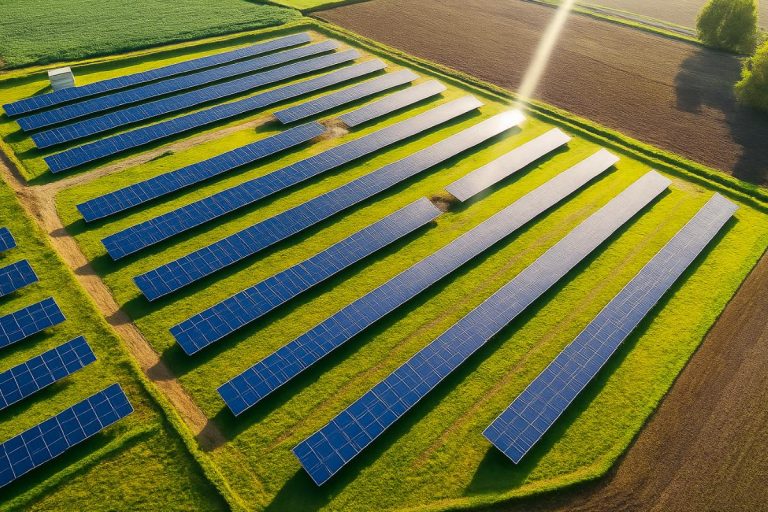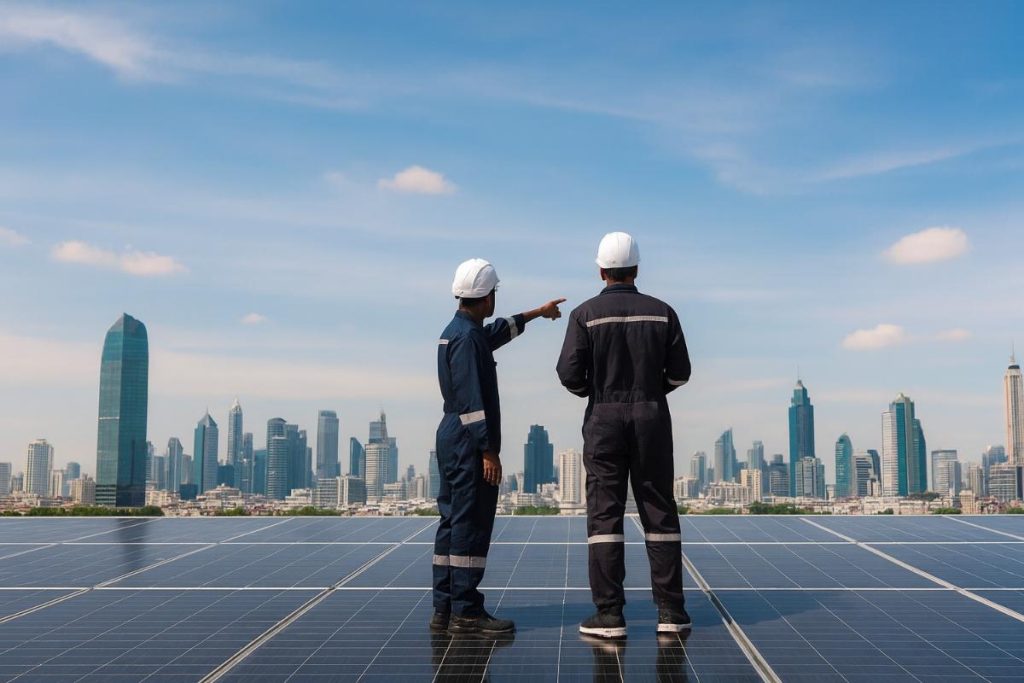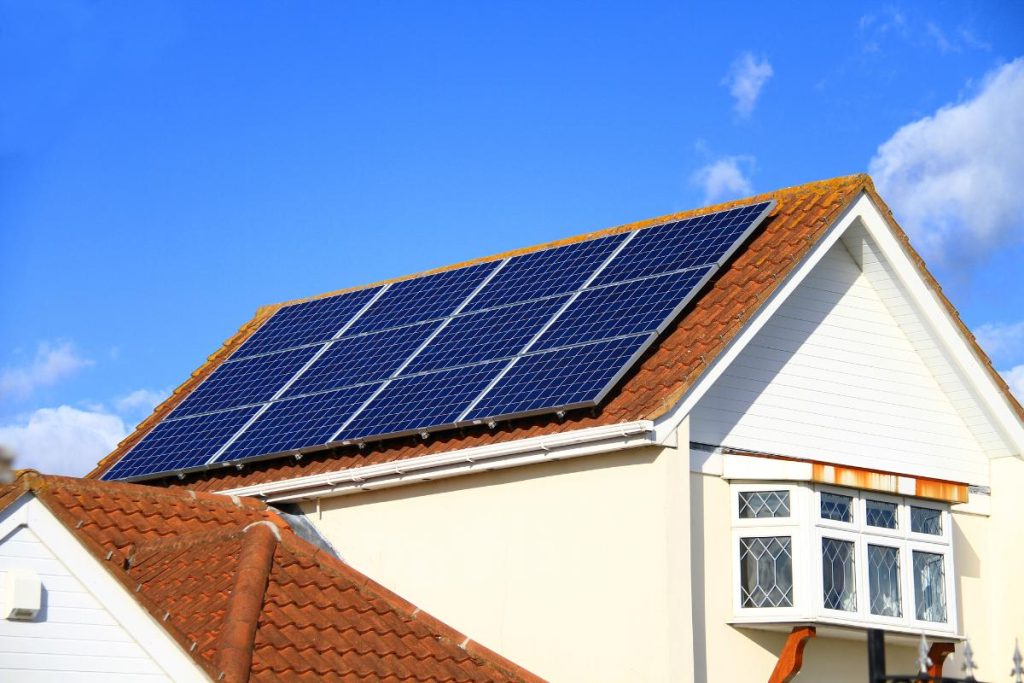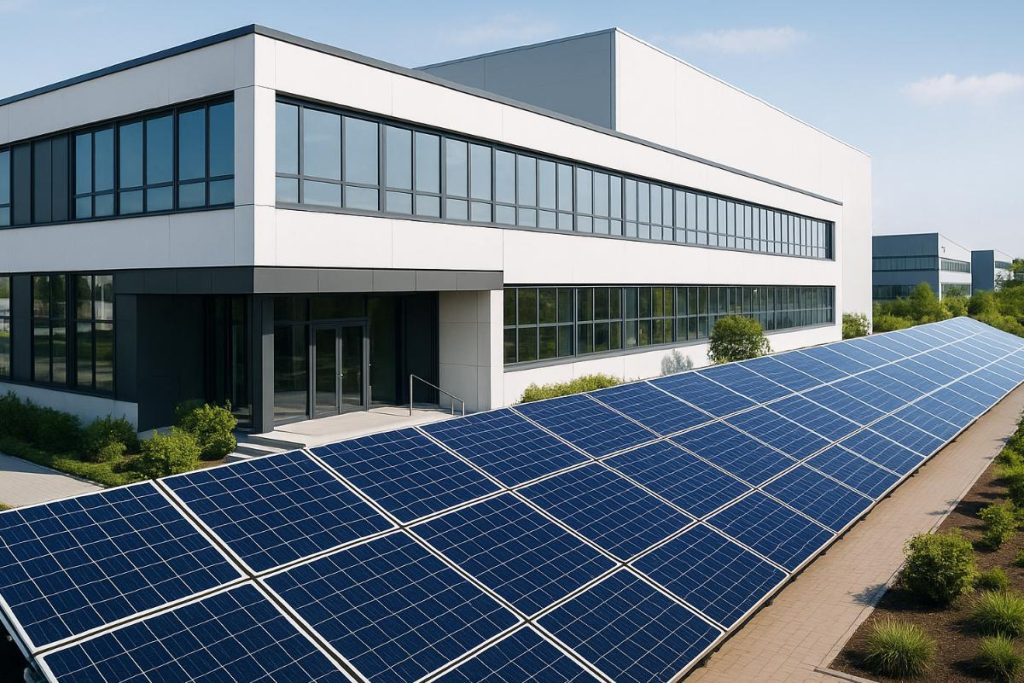For many people who invest in solar energy, a natural question arises: how does solar energy work at night? After all, solar panels rely on sunlight to generate electricity, but how do you guarantee energy when the sun isn't shining? The answer lies in the intelligent combination of generation, storage and integration with the electricity grid, which allows clean energy to be harnessed continuously, even at night.
Solar energy is one of the cleanest, most renewable and sustainable sources on the planet, capable of transforming the way we consume electricity in homes, businesses and industries. Understanding how it works, especially during periods without sunlight, is essential for those who want to invest safely and efficiently, ensuring comfort and savings at all times.
What happens to solar panels at night?
Solar panels are made up of photovoltaic cells that convert sunlight directly into electricity. During the day, when solar radiation hits these cells, they generate electricity that can be consumed immediately or stored for later use.
However, at night, the absence of sunlight prevents these cells from converting energy. Although there are other sources of natural or artificial light, such as the moon or street lighting, their intensity is insufficient to activate the photovoltaic cells in the panels, making them inactive at night.
As a result, energy production by solar panels is practically nil at night. This limitation makes it necessary to adopt complementary strategies to maintain the energy supply when the panels are not generating electricity.
The importance of storage to guarantee continuous energy
In order for solar energy to be used at night or on cloudy days, it is essential to store the surplus generated during the day. Storage is the key to making solar energy a reliable source that is available 24 hours a day.
By storing excess energy in batteries for solar energySolar systems with storage ensure that electricity is available even when the sun is out. This means that homes and businesses can count on a constant source of clean energy, reducing or even eliminating dependence on the conventional electricity grid.
In addition to providing energy autonomy, storage contributes to grid stability, reducing demand at peak times and helping to balance the electricity system.
Solar energy storage: how does it work?
Solar energy storage is mainly carried out using special batteries, which capture and store the electricity generated by the solar panels during the day. These batteries release the stored energy on demand, ensuring that electricity is available even when the panels are not producing.
Types of batteries for solar systems
Among the most widely used technologies are lithium iron phosphate batteries (LiFePO4), recognized for their safety, durability, high efficiency and lower environmental impact. These batteries can withstand thousands of charge and discharge cycles, maintaining their capacity and performance over time.
In addition to LiFePO4Other types, such as traditional lithium-ion batteries, lead-acid batteries and flow batteries, are also used in different contexts, but the trend is for lithium iron phosphate batteries to become the standard due to their better cost-benefit ratio and safety.
BYD, the world leader in storage technology, mainly uses LiFePO batteries4 in its BatteryBox range, offering modular and scalable solutions for different residential, commercial and industrial demands.
Connection to the mains as a backup for the night
For homes and establishments that have solar systems connected to the electricity grid (on-grid systems), energy from the grid acts as an automatic backup when solar generation is not sufficient, such as at night.
In these systems, the energy generated during the day is consumed by the home or business, and the surplus is sent to the grid, generating credits that can be used when solar energy is not available. This operation is carried out using inverters that synchronize the solar energy with the public grid.
This integration offers flexibility, reducing the need for batteries and the initial investment, as well as guaranteeing constant energy at reduced costs. However, this modality depends on the reliability of the local electricity grid.
BYD solutions for solar energy storage
BYD develops solar energy storage solutions based on cutting-edge lithium iron phosphate battery technology. Its BatteryBox range offers options for different needs, guaranteeing flexibility, safety and efficiency.
BatteryBox Premium LVS
This modular system starts with a capacity of 4 kWh and can be expanded up to 256 kWh, ideal for households looking for scalability as demand grows.
BatteryBox Premium LVL
With an initial capacity of 15.36 kWh and the possibility of connecting up to 64 batteries in parallel, reaching almost 1 MWh, it caters for larger commercial and industrial systems.
BatteryBox LV Flex Lite
Compact and modular, LV Flex Lite starts at 5 kWh and can be expanded up to 320 kWh, suitable for residential and commercial projects that require versatility.
BatteryBox Premium HVS and HVM
Aimed at applications requiring high power and robust backup, with initial capacities of between 5.1 and 8.3 kWh, scalable as required.
These solutions are designed to guarantee flexibility in installation and operation, adapting to different consumption profiles and environments, facilitating access to solar energy with storage in an efficient and safe manner.
Benefits of using stored solar energy at night
Use solar energy stored in batteries brings a series of advantages that go far beyond simply harnessing energy during the night. The main benefits include:
- extended energy autonomy: storage allows the energy captured during the day to be used at night or on cloudy days, ensuring the continuous operation of essential appliances such as lighting systems, refrigeration, medical devices and electronics. This reduces dependence on the conventional electricity grid, increasing the energy independence of the home or business.
- significant financial savings: by using stored energy, electricity consumption from the public grid is reduced or even eliminated during the night, when tariffs tend to be higher in some places. This reduction has a direct impact on the electricity bill, providing consistent monthly savings and a faster return on the investment made in the solar system.
- contribution to environmental sustainability: solar energy is a clean and renewable source, and its continuous use, day and night, reduces the need for fossil sources, reducing greenhouse gas emissions. With storage, the potential carbon footprint of your home or business drops considerably, reinforcing your commitment to environmental preservation.
- supply stability and reliability: stored energy provides a stable and reliable source, minimizing the risks associated with blackouts, voltage fluctuations and consumption peaks. This protects sensitive equipment and keeps residential and commercial operations running without interruption, increasing user safety and comfort.
- system flexibility and scalability: storage systems can be sized and expanded as required, allowing the user to adapt their energy capacity to growth in consumption or new demands, without compromising efficiency.
- property appreciation: the installation of solar systems with storage adds value to the property, making it more attractive on the market by offering modern, economical and sustainable solutions.
How much does it cost to store solar energy?
The cost of storing solar energy varies depending on the capacity of the batteries, the type of technology and the scale of the system. Although the initial investment is higher than for solar systems without storage, the reduction in operating costs and energy independence compensate for this in the medium and long term.
In addition, with growing competitiveness and technological advances, the prices of batteries for solar energyin particular lithium iron phosphate, have been decreasing, making storage more and more accessible.
BYD, with its expertise and national production, contributes to making these solutions competitive and reliable in the Brazilian market.
The evolution of solar energy at night
In recent years, the technology applied to solar energy has undergone significant advances that have transformed the way this renewable source can be used, especially during the night, when direct generation from the panels is non-existent. Improvements in high-capacity batteries, such as lithium iron phosphate batteries, combined with intelligent energy management systems - which optimize use, storage and distribution - have revolutionized access to continuous solar energy.
In addition, efficient integration with traditional electricity grids allows hybrid systems to combine the best of both worlds, guaranteeing constant energy and flexibility for the user. These innovations bring homes, businesses and industries closer to the much-desired energy self-sufficiency, making it possible to use clean energy 24 hours a day, with high efficiency, operational safety and respect for the environment.
With these advances, solar energy is no longer a solution limited to sunlight hours, but a complete and viable alternative to meet modern energy needs, contributing to a more sustainable future.
Solar energy and sustainability at night too
Solar energy is recognized worldwide as one of the cleanest and most renewable sources available, but its potential goes far beyond daytime generation. With the intelligent use of storage systems, solar energy becomes a complete solution that guarantees sustainability 24 hours a day, including at night, when demand for energy remains high.
This technological advance has made it possible to significantly reduce dependence on fossil fuels, the burning of which is one of the main causes of greenhouse gas emissions and worsening climate change. By using stored solar energy, homes, companies and industries are helping to build a more responsible energy future, reducing their environmental impact and promoting a virtuous cycle of conscious use of natural resources.
BYD, a leader in innovation and sustainability, reinforces its environmental commitment by developing systems that maximize the use of renewable energy, encouraging practices that transform energy consumption in a positive, efficient and sustainable way, and contributing to a healthier planet for generations to come.
Use cases: where solar energy at night makes a difference
The ability to solar energy with storage for use at night has transformed the way different sectors ensure continuity, security and savings in their operations. Below, we highlight the main scenarios where this technology is having a significant impact:
- homes: for families, especially those who rely on medical equipment, security systems or essential electronic devices, stored solar energy ensures comfort and protection even at night or during periods of low light. This energy autonomy prevents inconvenience caused by blackouts and provides peace of mind in everyday life.
- businesses: businesses that operate during extended hours, such as supermarkets, pharmacies and restaurants, benefit from night-time solar energy to keep critical equipment running constantly, without interruptions. This avoids financial losses due to downtime and reduces energy costs from the conventional grid.
- industries: the continuity of production processes is vital for industries, which require stable, uninterrupted energy. The use of solar energy with storage makes it possible to reduce operating costs, minimize the risk of unplanned downtime and increase energy efficiency, contributing to the sustainability and competitiveness of the sector.
These examples show how stored solar energy is a versatile solution that meets varied demands, guaranteeing economic and environmental benefits in different contexts.
How to plan a solar energy system with storage?
Planning a solar energy system with efficient storage is essential to guarantee maximum use of renewable energy, ensuring autonomy, savings and sustainability. To do this, it is essential to follow a number of steps involving detailed analysis, correct sizing and the right choice of technology.
- assessing energy consumption and usage profile: the first step is to understand the consumption pattern of the home or business, identifying which appliances and systems consume the most energy, the times of day when demand is highest and the specific needs of the user;
- sizing solar panels and batteries: based on consumption, it is necessary to calculate the ideal number of panels to capture enough energy and size the batteries to store the surplus, ensuring energy is available at night and on days with low solar generation;
- selection of compatible equipment and appropriate technology: choosing inverters, controllers and batteries that work in an integrated and efficient manner is fundamental to the system's good performance, minimizing losses and extending the useful life of the components;
- specialized technical support for installation and maintenance: having a qualified team for correct installation, monitoring and preventive maintenance ensures reliable operation of the system over time.
BYD stands out for offering personalized consultancy, accompanying each stage of planning and implementation, guaranteeing tailor-made solutions, high performance and continuous support to maximize the benefits of the project. solar energy with storage.
Why choose BYD for solar energy with storage?
With decades of experience, advanced technological development and a focus on the customer, BYD leads the Brazilian market in solutions for solar energy with storage. Its national production, R&D center in Campinas, structured after-sales service and technical training guarantee innovation, quality and trust for consumers and companies.
Talk to BYD and discover the best solution for 24-hour solar energy
To guarantee clean and continuous energy in your home or business, count on BYD. Discover our intelligent generation and storage solutions that transform the use of energy. solar energy with batteryoffering autonomy, savings and sustainability at any time of day. Find out how to guarantee solar energy even at night with the BYD solutions.
READ ALSO:
- Photovoltaic solar panels: what they are, how they work, types and advantages
- Complete photovoltaic kit: price, components and how to choose yours
- How much does it cost to charge an electric car? BYD Economy Guide 2025
- Electric car charger: types, operation and installation at home
- How much does residential solar energy cost and why is it worth it?

